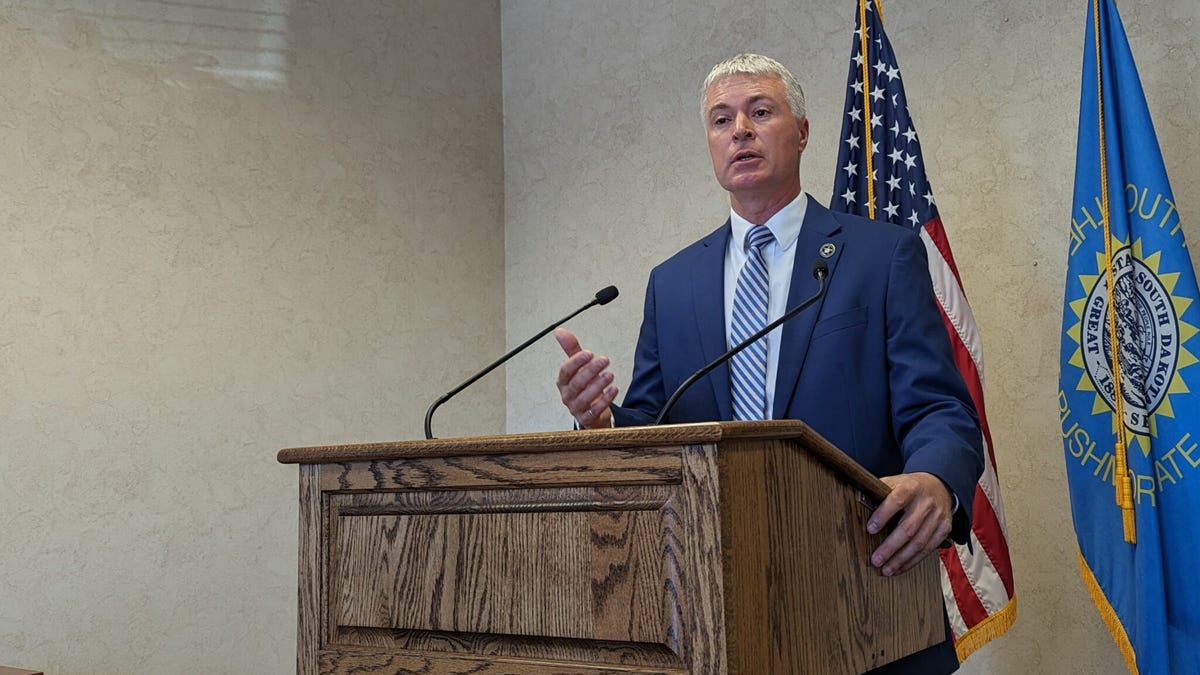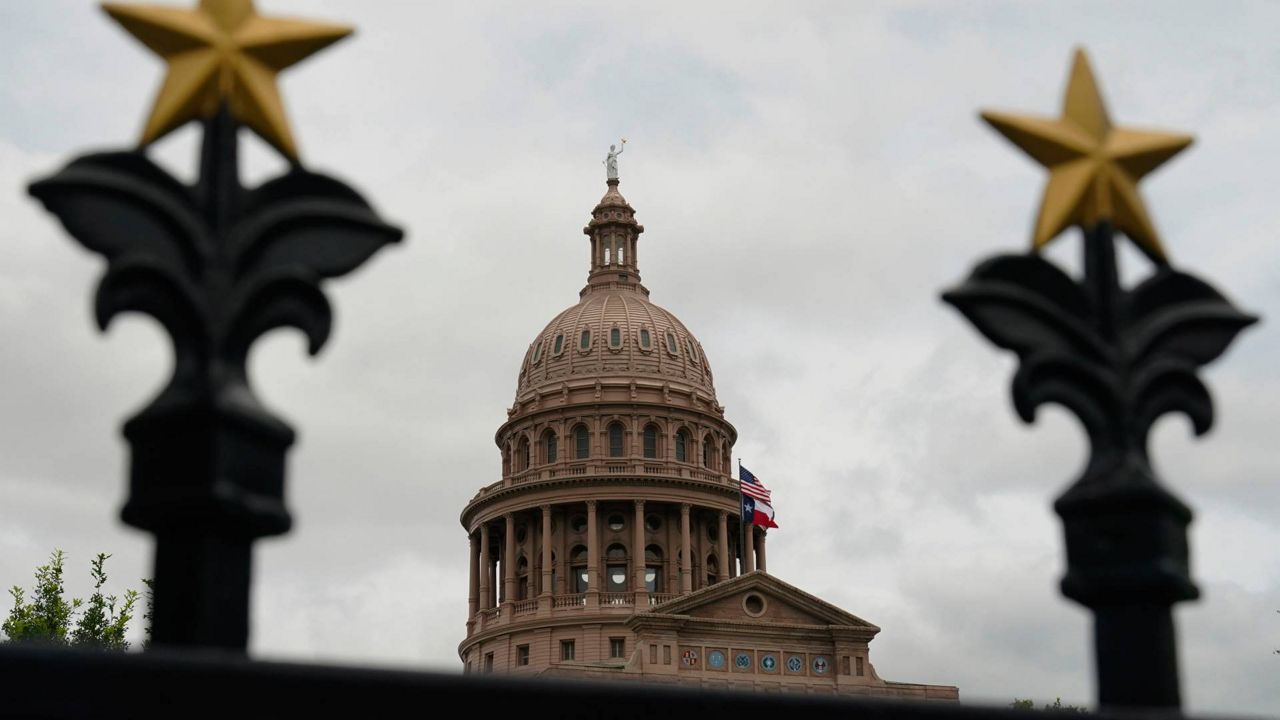World
Trump downplays his legal challenges on the campaign trail in Iowa after revealing new target letter
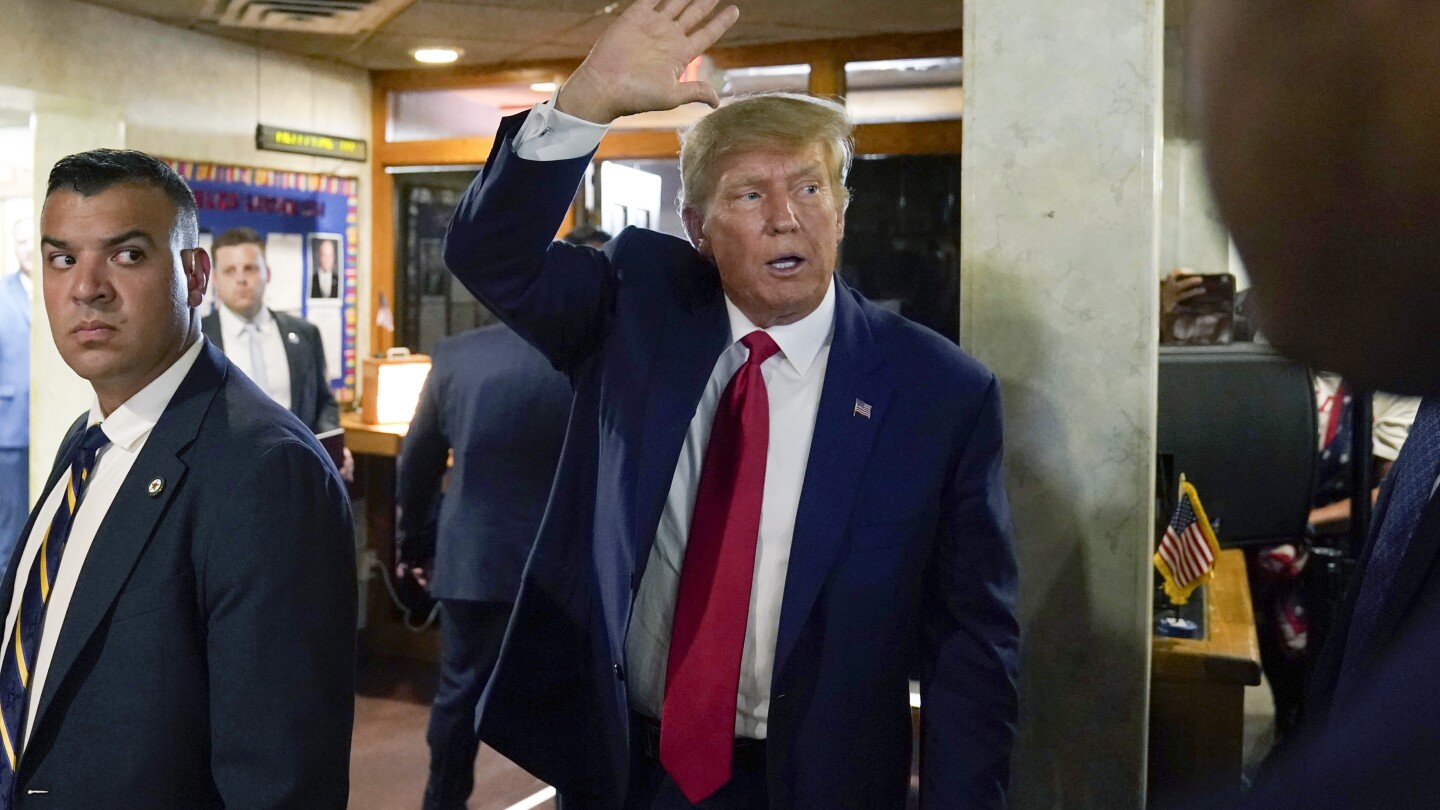
CEDAR RAPIDS, Iowa (AP) — Former President Donald Trump joked about his legal challenges while campaigning in eastern Iowa on Tuesday night, just hours after announcing he’d received a target letter in the Justice Department’s investigation into efforts to overturn the 2020 election.
Headlining a Republican county meeting, Trump attacked investigators while trying to make light of what could be his third criminal indictment since March.
“I didn’t know practically what a subpoena was and grand juries. Now I’m becoming an expert,” he told the audience at an Elks Lodge in Cedar Rapids.
Iowa Gov. Kim Reynolds says plans are in progress to appeal a temporary block on the state’s new, restrictive abortion law, previewing a likely emotional court battle that could take months to resolve.
An Iowa judge temporarily blocked the state’s new ban on most abortions after about six weeks of pregnancy days after Gov. Kim Reynolds signed the measure into law.
When Iowa Gov. Kim Reynolds seized the spotlight from a half dozen Republican presidential contenders on Friday by signing a restrictive abortion measure into law at an event meant to showcase the candidates, she embraced her front-and-center role in the 2024 presidential election.
Florida Gov. Ron DeSantis says he would consider Iowa Gov. Kim Reynolds as a potential running mate, should he win the 2024 Republican presidential nomination.
He also taped a town hall with Fox News host Sean Hannity that aired later Tuesday night.
The trip to the leadoff GOP voting state was yet another indication that, when it comes to Trump, none of the rules of politics ever apply. Trump did not cancel the trip to huddle with advisers, and he was not disinvited by organizers. Instead, he carried on as he has for months, incorporating his latest legal woes into his usual stump speech mixture of grievance, lies about the 2020 election, criticism of President Joe Biden and his agenda for a second term.
Iowa, with its caucuses just six months away, is a critical state for Trump, his party’s decisive early front-runner, and his rivals.
He set off for his latest trip just hours after announcing on his Truth Social platform that he had received a letter Sunday informing him that is the target of special counsel Jack Smith’s investigation into the aftermath of the 2020 election and the events leading up to the Jan. 6, 2021, riot at the U.S. Capitol. Such letters often precede indictments and are used to inform individuals under investigation that prosecutors have gathered evidence linking them to a crime.
Trump has already been indicted twice — once in New York and once in Florida — and also faces potential charges in a separate election interference investigation nearing its conclusion in Georgia, a stunning and unprecedented legal onslaught as he runs for the 2024 Republican presidential nomination.
But the indictments have yet to damage Trump’s standing. Instead, early polling shows Trump ahead of his closest rival, Florida Gov. Ron DeSantis, by 20 to 30 points, or more.
The monthly meetings of the Linn County GOP, typically lightly attended affairs, have become somewhat more popular in recent months as representatives from various Republican presidential candidates’ campaigns have paid visits to build goodwill with party regulars.
But Tuesday’s gathering was far from ordinary. More than 150 people — many wearing Trump’s signature “Make America Great Again” red hats — squeezed into the hall of the Elks Lodge on the city’s southwest side. Press covering the stop were cordoned behind the bar typically used for weddings and anniversaries.
At least as many Trump supporters remained outside the event, unable to get in, and were left on the sidewalk to greet the president as he arrived and departed.
News of the target letter, said Linn County, Iowa, GOP chair Bernie Hayes, only emboldens the former president’s supporters.
“Does something like that engender sympathy? I think certainly it does,” Hayes said, as the small event room filled beyond the number of chairs set. “The man’s being persecuted, so they are just thinking of another way to persecute him.”
Some Iowa Republicans have said in interviews that the mounting legal battles Trump faces could make it difficult for him to govern if elected and that they have begun looking to alternatives.
But Hayes said the developments have only strengthened the resolve of Trump supporters he talks to.
“If anything, people see President Trump is actually hardened by the trials he’s gone through and knows what he’s up against,” Hayes said.
Teresa Horton-Bumgarner from small-town Solon, east of Cedar Rapids, echoed that she and Republicans in her circle believe strongly the Biden administration is “using the judicial system as a political weapon.”
“Nothing that (Trump) did on Jan. 6, that I’ve ever seen that incited violence. He said to peacefully protest, and lawfully,” said Horton-Bumgarner, 56, who described the indictments against Trump as so “egregious” that Republicans “tend to rally behind him.”
Before his speech, Trump was interviewed on local radio, and railed against the investigations while dismissing potential negative fallout.
“The people of our great country, they fully understand what’s going (on). It’s election interference. It’s a weaponization of justice,” he said.
Speaking of his supporters, he said: “They are never leaving us because they want to make America great again. They’re with us. They have a passion like nobody’s ever had.”
The Jan. 6 probe has centered on a broad range of efforts by Trump and allies to keep him in office, including plans for slates of fake electors in multiple battleground states won by Biden to submit false electoral certificates to Congress.
Legal experts have said potential charges could include conspiracy to defraud the United States and obstruction of an official proceeding, in this case Congress’ certification of Biden’s electoral victory.
In Washington, Sen. Joni Ernst, R-Iowa, said Trump’s supporters would not be turned off by the developments.
“We’ll see what they come up with …. but I tell you, the more they target Donald Trump? I mean, boy, the base, they just eat it up,” she said. “They see two systems of justice, one for Donald Trump and one for everybody else.”
Trump called a top GOP ally in the House, Rep. Elise Stefanik of New York, to rally Republicans against the investigation and discuss their strategy for going on offense, according to a person familiar with the conversation and granted anonymity to discuss it. Trump also spoke with House Speaker Kevin McCarthy, the person said. McCarthy once criticized Trump over Jan. 6 but on Tuesday accused Democrats of trying to “weaponize government to go after their number one opponent.”
Sen. John Thune of South Dakota, the Senate minority whip, said that, with one indictment after the next, voters eventually “tune it out. It doesn’t have the weight or the meaning that it does when you’ve got this many things coming at you.”
“Now, on the other hand,” he added, “it also creates, I think, kind of a lot of noise and distraction that always seem to surround the former president. At what point does that have some effect on people’s opinions? I don’t know.“
___
Colvin reported from New York. Associated Press writers Mary Clare Jalonick and Lisa Mascaro contributed to this report from Washington.

World
In Tibet, Chinese Boarding Schools Reshape the ‘Souls of Children’

Across China’s west, the party is placing children in boarding schools in a drive to assimilate a generation of Tibetans into the national mainstream and mold them into citizens loyal to the Communist Party.
Tibetan rights activists, as well as experts working for the United Nations, have said that the party is systematically separating Tibetan children from their families to erase Tibetan identity and to deepen China’s control of a people who historically resisted Beijing’s rule. They have estimated that around three-quarters of Tibetan students age 6 and older — and others even younger — are in residential schools that teach largely in Mandarin, replacing the Tibetan language, culture and Buddhist beliefs that the children once absorbed at home and in village schools.
When China’s top leader, Xi Jinping, visited one such school in the summer, he inspected a dormitory that appeared freshly painted and as neat as an army barracks. He walked into a classroom where Tibetan students, listening to a lecture on Communist Party thought, stood and applauded to welcome him.
Mr. Xi’s visit to the school in Qinghai Province in June amounted to a firm endorsement of the program, despite international criticism. Education, he said, must “implant a shared consciousness of Chinese nationhood in the souls of children from an early age.”
Chinese officials say the schools help Tibetan children to quickly become fluent in the Chinese language and learn skills that will prepare them for the modern economy. They say that families voluntarily send their children to the schools, which are free, and that the students have classes in Tibetan culture and language.
But extensive interviews and research by The New York Times show that Tibetan children appear to be singled out by the Chinese authorities for enrollment in residential schools. Their parents often have little or no choice but to send them, experts, parents, lawyers and human rights investigators said in interviews. Many parents do not see their children for long stretches.
Dozens of research papers and reports from experts and teachers within the Chinese system have warned about the anxiety, loneliness, depression and other psychological harm of the schools on Tibetan children.
The Times reviewed and analyzed hundreds of videos posted to Chinese social media sites by Tibetan boarding schools, state media and local propaganda departments that showed how the schools operate and serve the party’s objectives.
Student life is heavy with political indoctrination. Schools, for instance, celebrate what China calls “Serfs’ Emancipation Day,” referring to the anniversary of the Communist Party’s full takeover of Tibet in 1959, after a failed Tibetan uprising and a Chinese crackdown that forced the Dalai Lama into exile. The party accuses the Dalai Lama, the Tibetan spiritual leader, of having ruled over a slaveholding society.
The Times also found video accounts of boarding school teachers and travelers that showed how some schools are underfunded and overstretched. We are not crediting some of the accounts by name to avoid drawing a backlash against them.
China has been expanding its boarding schools for Tibetan children even as countries like the United States, Canada and Australia have been grappling with the trauma inflicted on generations of Indigenous children who were forcibly removed from their families and placed in residential schools. (President Biden in October apologized on behalf of the U.S. government for the abuse of Indigenous children in residential schools from the early 1800s to the late 1960s, calling it a “a sin on our soul.”)
China has been eager to show that happy, well-fed Tibetan children are proudly declaring that they are Chinese.
Chugqensumdo Town Tibetan Boarding Central Primary School/Tencent Video
Songpan County Caoyuan Township Central Primary School/WeChat
Strangers in Their Own Homes
Gyal Lo, a Tibetan education researcher, became alarmed by the boarding schools in 2016, when he saw that his two preschool-aged grandnieces, who were attending one in his hometown in northwestern China, preferred to speak Mandarin, not Tibetan.
When the grandnieces, then ages 4 and 5, went home on the weekend, he said in an interview, they appeared withdrawn and spoke awkwardly in Tibetan with their parents, much changed from when he saw them in the previous year. Now they behaved “like strangers in their own home,” he said.
“I said to my brother, ‘What if you don’t send them to the boarding school?’” Gyal Lo said. “He said he had no choice.”
Gyal Lo set out to investigate the changes that families were going through as the schools expanded across Tibetan regions in China. Over the next three years he visited dozens of such schools, and saw that many Tibetan students spoke little of their mother tongue and were sometimes only able to see their parents once every several weeks or even months.
Children as young as preschool age were being sent away, he said, and parental visits were limited. The Times talked to three Tibetan parents with children of elementary-school age in residential schools who said that they had no choice and that they were not allowed to visit their children at will.
Many Tibetan parents accept that their children should learn Chinese for a chance at better jobs, said Gyal Lo, who now lives in Canada and is an activist working to draw attention to the schools. But most also want their children to first gain a strong grounding in their mother tongue.
“Children should learn from their grandparents, their parents, about their local language, about the names of things, about their traditions and their values,” Gyal Lo said in an interview. “Boarding schools create a physical and emotional distance from their parents and family members.”
Under Mr. Xi, such schools have sharply cut classes in Tibetan. Instead most classes are taught in Chinese, a language unfamiliar to many rural Tibetan children, who mix little with the Han Chinese majority.
Chinese officials insist that enrollment is voluntary. In reality, the government has closed village schools and privately run Tibetan language schools, while strictly enforcing mandatory education laws.
“One can hardly speak of any choice if local schools are all closed down,” said Fernand de Varennes, a human rights expert.
He and two other independent experts with the United Nations investigated the boarding schools and expressed alarm in 2023 at what they said appeared to be a “policy of forced assimilation of the Tibetan identity into the dominant Han-Chinese majority.”
At Risk of Abuse and Neglect
The text messages and voice memos trickled in, carrying urgent questions from Tibetans in China seeking legal advice about the treatment of children in boarding schools.
One man wrote to ask about what redress to demand for a child who suffered permanent injury from a classroom fight while the teacher was absent. Another said that a child was found dead in the bathroom of a boarding school, of unclear causes, and that the child’s parents wanted answers. The questions had been sent over the past three years to volunteers offering online legal advice to Tibetans. Times reporters reviewed several such messages, which were shared with us, but were unable to independently verify the accounts.
In 2021, a video surfaced online showing an elementary schoolteacher in eastern Tibet beating a child with a chair in his classroom. The video circulated on the internet in China more than 1,000 times before it was taken down. The school at which the beating took place has been described in state media reports as having students who lived on campus.
The video set off a public outcry. In response, the local government conducted an investigation and said in an official statement that the beating had left a three-inch-long wound on the child’s forehead and that the teacher had been suspended.
Physical punishment is outlawed in Chinese schools, but studies by Chinese academics have found that the practice persists in Tibetan boarding schools. A 2020 study by Chinese researchers on boarding schools for children from ethnic minorities said that some teachers “lacked concern for the students,” treated them roughly and were “even resorting to physical punishment.”
Local legislators and researchers in Tibetan areas have reported that the already overcrowded schools face serious shortages of teachers and support staff.
A 16-year-old living in a Tibetan village in Sichuan Province told The Times that beatings by teachers were a constant at the residential school he attended. He said that over the years he had accumulated several scars on his back from beatings by teachers, sometimes by hand and other times with a wooden ruler.
A Generation of Cultural Erasure
The Chinese government does not say how many Tibetan children are in boarding schools. The Tibet Action Institute, an international group that has campaigned to close the schools, estimates that among children aged 6 to 18, the figure is at least 800,000 — or three in every four Tibetan children.
The group arrived at its estimate, which it published in a report in 2021, based on local government statistics. Lhadon Tethong, a co-founder and director of the group, likened the Chinese schools to the colonial residential schools in Canada, Australia and the United States.
“Different time, different place, different government, but same impact,” she said, “in the sense of breaking cultural and familial bonds and roots, and psychologically damaging and traumatizing kids at their foundation.”
Statistics collected by The Times from local government documents across Tibetan areas show similar numbers in boarding schools, with some areas notably higher than others.
In Golog, a Tibetan area of Qinghai Province, 95 percent of middle school students were in such schools, according to a study published in 2017 in China’s main journal on education for ethnic groups. A report from the local legislature in 2023 said that 45 of the 49 elementary schools in Golog were residential.
The expansion of boarding school enrollment in Tibetan areas runs counter to the national trend. Chinese government guidelines issued in 2018 say that elementary school children should not, in general, be sent to such schools.
But children from ethnic minorities in border regions seem to be treated as an exception. In the far western region of Xinjiang, children of the Muslim Uyghur ethnic group have also been sent to residential schools in large numbers.
Chinese officials say such schools help children in the Tibetan region avoid long commutes. But official websites also promote instructions from Mr. Xi on minority education, arguing that youth in ethnic minority regions were at risk of having “erroneous” ideas about religion, history and ethnic relations.
To counter those threats, Mr. Xi said in 2014, children of the right age should “study in school, live in school and grow up in school.” The government’s hope is that those children will then become champions of the Chinese language and the party’s values.
In one video, which appears to be filmed and uploaded on social media as part of a school assignment, a Tibetan fourth-grader at a boarding school described how she saved the day when a Chinese cashier could not understand the girl’s mother, who spoke only Tibetan. She then called on other students to teach their parents Mandarin. “Be a Civilized Person, Speak Mandarin,” the video was titled.
Warnings From Within China
China’s drive to assimilate the Tibetans echoes history elsewhere in the world where Indigenous people were seen by their foreign occupiers as savages who needed to be civilized with boarding schools, causing trauma and abuses. It’s a parallel that Chinese officials reject.
But some of the starkest warnings about the toll that boarding schools are taking on Tibetan children come, strikingly, from within China’s education system.
Teachers, education researchers and local legislators in China have written reports describing Tibetan children as suffering from being separated from their families and from being largely confined within their schools.
In education journals, teachers have shared advice on helping Tibetan children cope: Create a homier feel by decorating dorm rooms and cafeterias, and be ready for students to be anxious about when they could return home.
Many boarding schools in more remote Tibetan areas appear to be underfunded and lacking in facilities, teachers and trained counselors. Local lawmakers found in 2021 that one school for elementary children in Golog, the Tibetan area of Qinghai, had no tap water or power connection for its cafeteria until they complained.
“Because boarding schools lack staff like dormitory supervisors, security guards and medical carers, the teachers must take on 24-hour duty weeks while also fulfilling their daily teaching duties,” said a 2023 survey conducted by the Golog legislature.
In video diaries uploaded to social media, teachers in Tibetan regions have described days in which, on top of teaching, they must also deliver food to students, show them how to make beds and tuck them in at night.
A teacher at an elementary school in Tibet, who goes by Ms. Chen on social media, posted a series of video blogs in 2022. In one, she documented a typical day that started with a morning study session before dawn and ended with her checking on the children before bedtime.
Another teacher, who identifies himself as Mr. Su on social media, says he teaches at an elementary and secondary school in Ngari, Tibet. He shot a video while patrolling the dormitories of younger students while on duty one night in 2023.
“All of us are basically standing in as their parents,” he wrote in one social media post.
Videos from Chinese travelers show how difficult it can be for rural schools to meet the needs of their students. In 2021, a traveler who recorded a visit to one school in Garze, a Tibetan area in Sichuan Province, said that the dorms looked nice but that there weren’t enough beds. Two children shared a bed and huddled to keep each other warm in the winter, as there was no central heating.
Some teachers defend the schools as ultimately for the good of children. Others described encountering widespread opposition to the policy.
A 2023 study from Garze concluded that parents, teachers and school administrators were reluctant to send young children to boarding schools. Many parents, the study said, conveyed “helplessness, worry, incomprehension and an inability to speak out” about the changes.
Education, especially in minority areas, is a politically sensitive topic. Tibetans who oppose the boarding schools risk imprisonment if they protest. Tashi Wangchuk, a Tibetan businessman who petitioned the government to preserve schooling in Tibetan and spoke to The Times about his efforts, was sentenced to prison for five years in 2018.
Yet, some still voice their worries. On Douyin, China’s version of TikTok, parents lamented the diminishing role that the Tibetan language plays in their children’s lives.
“After just one month in kindergarten, my child basically no longer speaks Tibetan. Now when we speak to our child in Tibetan, they only respond in Mandarin,” one person wrote in a comment.
“No matter how we try to teach Tibetan now, they won’t learn it. I’m really heartbroken.”
World
Lebanon's new president strikes a nationalistic tone amid regional shifts, further weakening of Hezbollah
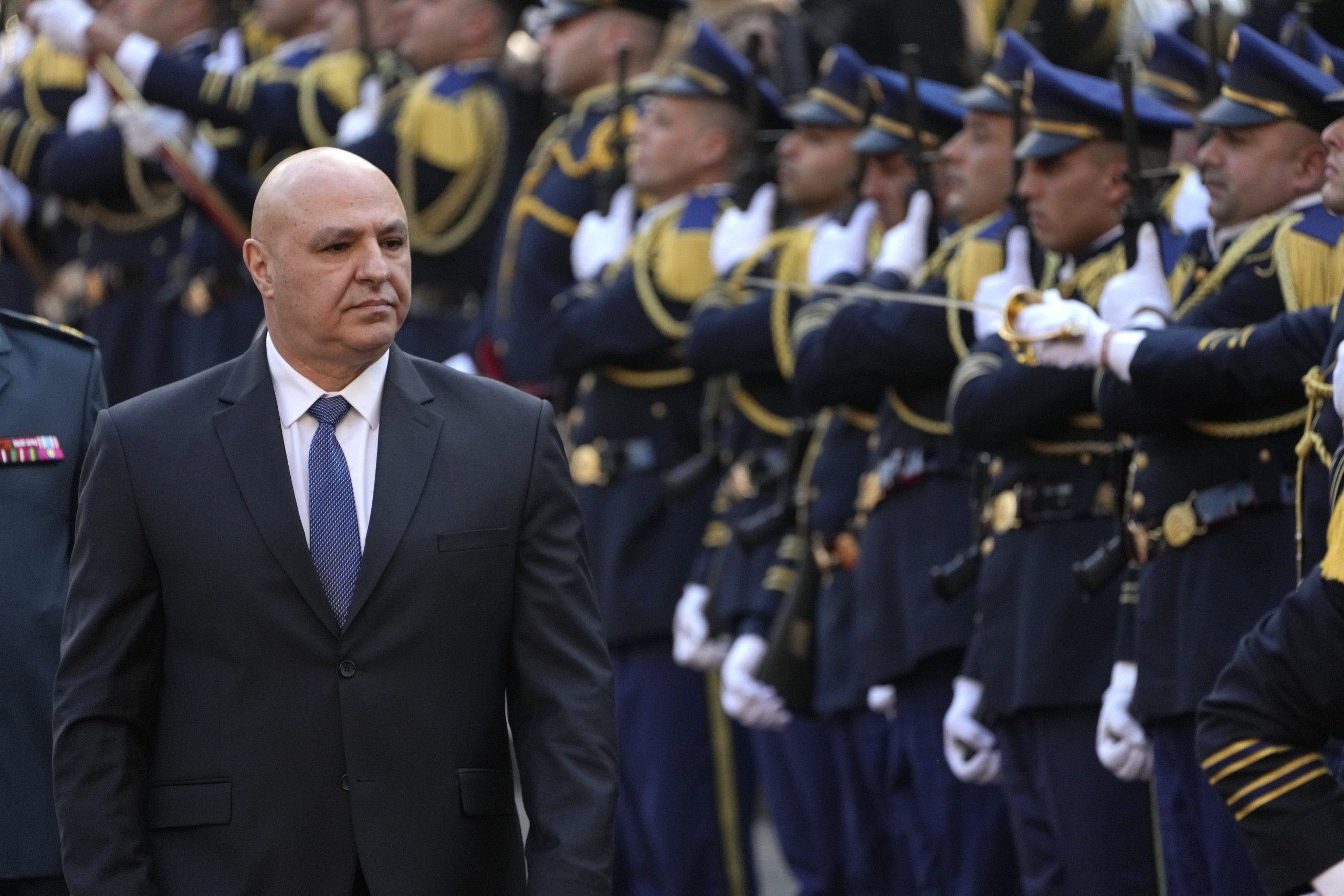
Lebanon’s political landscape has undergone a dramatic shift with the election of Joseph Aoun as president. After more than two years of political deadlock, the Lebanese Parliament elected the army commander on Thursday with 99 out of 128 votes.
Aoun’s election represents a significant achievement for the anti-Hezbollah camp, reflecting the weakening influence of the powerful Shia terrorist organization within Lebanon’s political system. Despite this, experts say Hezbollah remains a formidable force in the country, and the challenges Aoun faces in balancing Lebanon’s internal politics and foreign relations remain immense.
For much of the past two years, Hezbollah worked tirelessly to block any movement toward the election of a new president. The group had strongly opposed Aoun’s candidacy. However, as the political situation evolved and the ousting of Assad from Syria unfolded, Hezbollah was ultimately forced to accept Aoun, who secured the presidency.
“Hezbollah had been opposed to his election for the last two and a half years and had blocked any process toward electing a president for all that time. Now, they’ve voted for him in the second round, which indicates they are in a bind, that they are weaker, and their leverage is not what it was,” Vice President for International Engagement at the Middle East Institute Paul Salem told Fox News Digital.
ISRAEL DEGRADES IRAN-BACKED HEZBOLLAH TERRORISTS IN SPECTACULAR PAGER EXPLOSION OPERATION: EXPERTS
Newly-elected Lebanese President Joseph Aoun reviews the honor guard upon his arrival at the Lebanese Parliament to be sworn in as the new president in Beirut on Thursday, Jan. 9, 2025. (AP Photo/Hussein Malla)
Salem points to the broader shift in regional politics, notably the collapse of the Assad regime in Syria, which has left Hezbollah increasingly isolated. “They are now not only cut off from Iran, but they’re also isolated in the region. They’re the only Shiite community between here and Basra, and it’s a Sunni takeover of Damascus, which used to be dominated by a friendly Alawite, pro-Iranian regime. It’s a huge historic shift that leaves the Shiites and Hezbollah deeply isolated. Hezbollah’s future is worse than its present,” he added.
The U.S. and Israel, along with other Western and Arab powers, have long sought to distance Lebanon from Hezbollah’s influence, and Aoun’s election could be a step in that direction.
Aoun, a Maronite Christian and the commander of the Lebanese army, took office with a strong message focused on Lebanon’s sovereignty. In his inaugural speech, he emphasized the necessity for the state to have a monopoly on the use of force.
David Schenker, former head of the Bureau of Near Eastern Affairs at the U.S. State Department under the first Trump administration, remarked that Aoun’s speech was both a positive and pragmatic step for Lebanon. “He talked about disarming all groups and ensuring that weapons are under the control of the state,” Schenker said. “This was a good move, as it shows a commitment to sovereignty and the rule of law.”
CHRISTIAN LEADER IN LEBANON URGES US, ALLIES TO INTERVENE TO STOP HEZBOLLAH
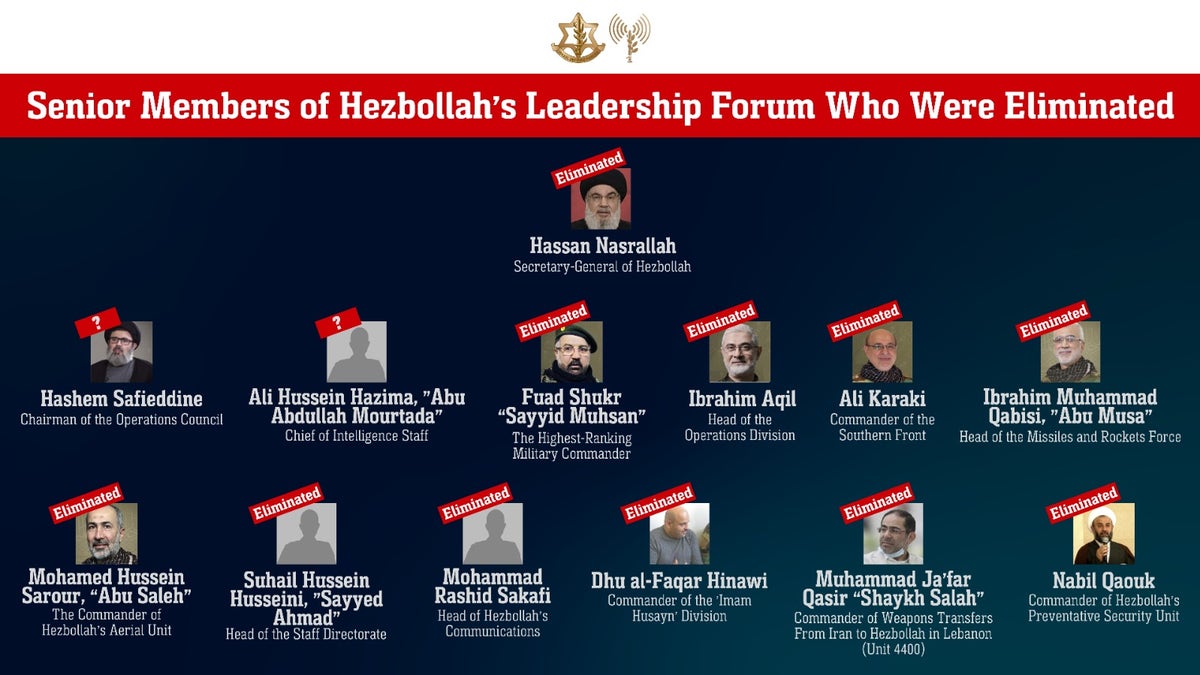
An updated graphic detailing the members of Hezbollah’s leadership who have been eliminated by the Israeli Defense Forces. (IDF Spokesman’s Unit)
However, Schenker, who is currently the Taube Senior Fellow at The Washington Institute and director of the Linda and Tony Rubin Program on Arab Politics, cautioned that Aoun’s position as president does not grant him absolute power in Lebanon’s political system. “The president is not the most powerful position in Lebanon. The key position will be the prime minister. It remains to be seen whether Aoun will show the same courage in his new role that he demonstrated as chief of staff,” Schenker noted.
Though Hezbollah has been militarily weakened by recent Israeli campaigns and the assassination of its leader Hassan Nasrallah, among other key leaders, it still retains significant influence, particularly in southern Lebanon. However, Schenker says the organization’s ability to intimidate Lebanon’s population is diminishing. “Hezbollah isn’t the force it was. It can still reactivate its killing machine if needed, but it no longer dominates the way it did before,” he said.
“Hezbollah has calculated that they’ve lost this battle against Israel, and then they lost another battle in Syria. So their interest now is to lay low, have a president and government that’s acceptable to the U.S. and the region, which, at the end of the day, they hope will protect them from any further Israeli incursions and help their people,” Salem explained. “They need a functioning government to secure international aid for the millions displaced by their actions in southern Lebanon. It’s about survival for them, not just politically, but financially.”
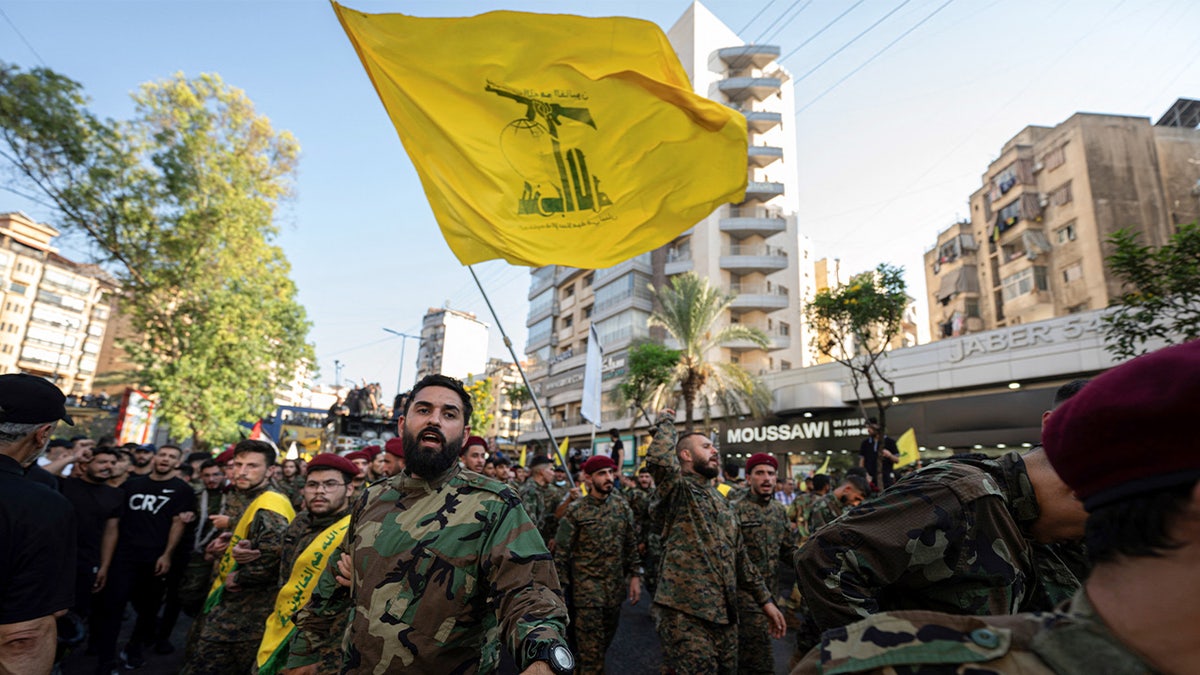
Hezbollah terrorists form a human barrier during the funeral procession of slain top Hezbollah commander Fuad Shukr in Beirut’s southern suburbs on Aug. 1, 2024. (Photo by KHALED DESOUKI/AFP via Getty Images)
Aoun’s election is not only significant for Hezbollah’s position in Lebanon, but also for the country’s relations with external powers like the U.S. and Israel. Lebanon has faced economic collapse, with its currency devalued by over 99%, and nearly 80% of the population now living below the poverty line. Hezbollah’s previous resistance to international pressure now seems less tenable.
The U.S. has long supported Lebanon’s military and is expected to strengthen its ties with Aoun, given his role in the army and his pro-sovereignty stance. Schenker said that Lebanon’s future alignment with the U.S. and regional allies such as Saudi Arabia could provide the country with much-needed international support.
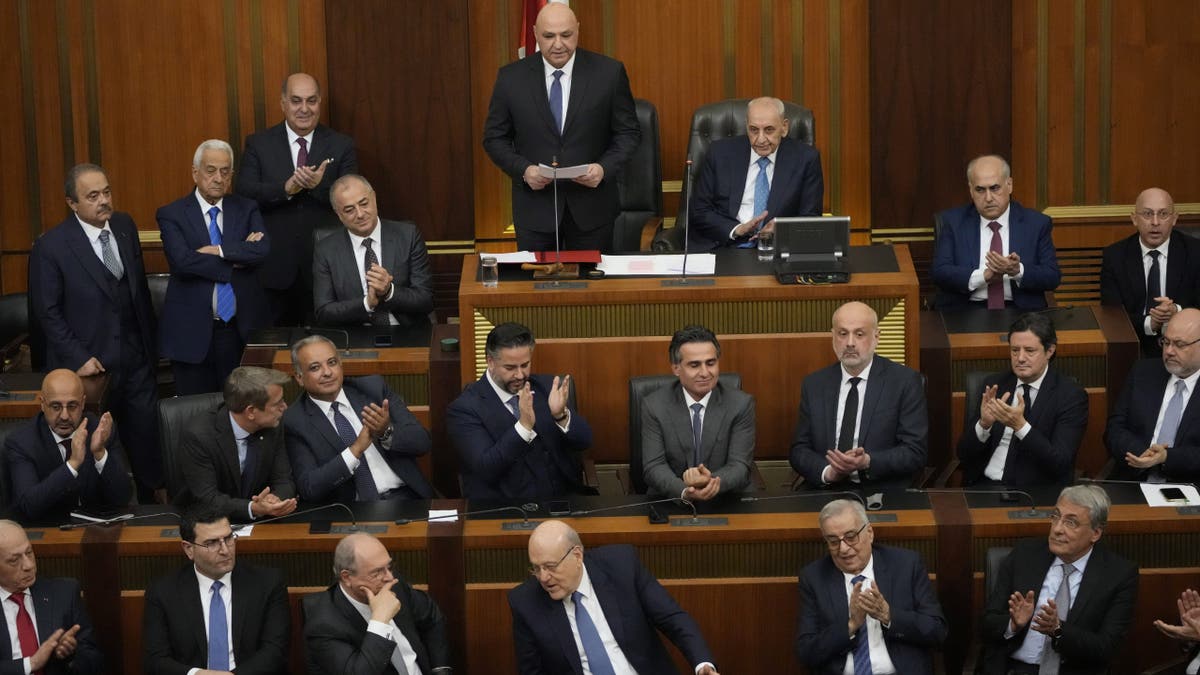
Lebanese cabinet ministers applaud the newly-elected Lebanese President Joseph Aoun, standing at the top, as he gives his first speech at Parliament after being sworn in as president in Beirut on Thursday, Jan. 9, 2025. (AP Photo/Hussein Malla)
“The U.S. military has been close to the Lebanese military for many years,” Salem told Fox News Digital. “That has been the strongest link between the U.S. and Lebanon. So to have the head of the military come to power, he’s a known figure in Washington. He’s known to the military, and now, he’s known to the diplomats and politicians, and will be known to President Trump and others over time. This realignment could put Lebanon on a much more natural path of cooperation with the U.S., Saudi Arabia, and other regional allies.”
Israel will also be closely monitoring Aoun’s presidency. Schenker said that Aoun’s commitment to U.N. Security Council Resolution 1701, which calls for disarmament in southern Lebanon, could lead to a more cooperative stance from Lebanon toward Israel. “Israel will be invested in Lebanon’s implementation of 1701,” Schenker said. “Aoun’s stance will influence Israel’s position toward Lebanon, as the Trump administration has clearly signaled a desire to end the wars in the region.”
World
Poland says Netanyahu won't be arrested if he attends Auschwitz event

Polish Prime Minister Donald Tusk says Israel’s Benjamin Netanyahu will not be detained despite the International Criminal Court (ICC) arrest warrant.
The Polish government has guaranteed that Israel’s Prime Minister Benjamin Netanyahu will not be arrested if he attends the 80th anniversary of the liberation of the Auschwitz-Birkenau death camp, despite the International Criminal Court (ICC) warrant against him.
Poland’s President Andrzej Duda, from the opposition Law and Justice party (PiS), this week wrote to the government requesting that Netanyahu not be arrested if he decides to attend the Auschwitz commemoration on 27 January, according to a presidential aide.
The office of Prime Minister Donald Tusk published a resolution on Thursday saying it would ensure the “safe participation of the leaders of Israel in the commemorations”.
“I confirm, whether it is the prime minister, the president or the minister — as it is currently declared — of education of Israel, whoever will come to Oswiecim for the celebrations in Auschwitz will be assured of safety and will not be detained,” Tusk said.
Tusk made clear that the resolution was “precise” and only applied to the Auschwitz commemorations.
“It is also very important for us that Poland is not among those countries that openly and demonstratively want to disregard the decisions of international tribunals,” he added.
The ICC issued arrest warrants in November for Netanyahu and his ex-defence minister, as well as a Hamas leader, Ibrahim Al-Masri, for alleged war crimes and crimes against humanity during the 15-month war in Gaza.
Member countries of the ICC, such as Poland, are required to detain suspects facing a warrant if they set foot on their soil, but the court has no way to enforce that. Israel is not a member of the ICC and disputes its jurisdiction.
The court has more than 120 member states, although some countries, including France and Hungary, have already said that they would not arrest him. Hungarian Prime Minister Viktor Orbán even said he would defy the warrant by inviting Netanyahu to Budapest.
It is unclear whether Netanyahu plans to attend the commemoration later this month, although he has been present at previous anniversary events at Auschwitz.
Poland’s Foreign Ministry, in response to an email query, said on Thursday that “it has not received any information so far indicating that Prime Minister Benjamin Netanyahu is going to attend the celebration of the 80th anniversary of the liberation of Auschwitz.”
The commemoration will be attended by international officials and elderly survivors. It is to take place in Oswiecim, a town that was under German occupation during World War II where the Nazi German forces operated the most notorious of their death camps.
More than 1.1 million people were murdered at Auschwitz. Historians say that most of them, about a million, were Jewish, but the victims also included Poles, Roma, Soviet prisoners of war, and others.
At least 3 million of Poland’s 3.2 million Jews were murdered by the Nazis, accounting for about half of the Jews killed in the Holocaust.
Additional sources • AP
-

 Business1 week ago
Business1 week agoThese are the top 7 issues facing the struggling restaurant industry in 2025
-

 Culture1 week ago
Culture1 week agoThe 25 worst losses in college football history, including Baylor’s 2024 entry at Colorado
-

 Sports1 week ago
Sports1 week agoThe top out-of-contract players available as free transfers: Kimmich, De Bruyne, Van Dijk…
-

 Politics1 week ago
Politics1 week agoNew Orleans attacker had 'remote detonator' for explosives in French Quarter, Biden says
-

 Politics1 week ago
Politics1 week agoCarter's judicial picks reshaped the federal bench across the country
-

 Politics6 days ago
Politics6 days agoWho Are the Recipients of the Presidential Medal of Freedom?
-

 Health5 days ago
Health5 days agoOzempic ‘microdosing’ is the new weight-loss trend: Should you try it?
-

 World1 week ago
World1 week agoIvory Coast says French troops to leave country after decades


